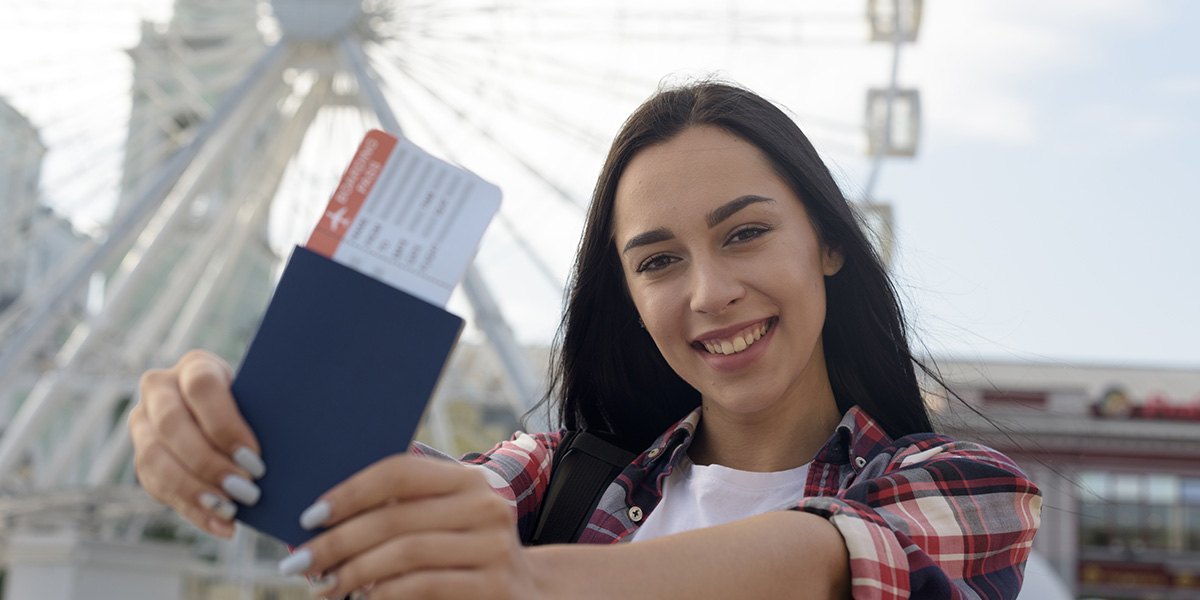

Visitor Visa Guide
Table of content
- Overview
- Eligibility requirements
- Genuineness and credibility assessment
- Maintenance and accommodation
- Purpose of the visit and permitted activities
- Visit to study
- Visit on business
- Visit for medical reasons
- Visit as an academic
- Marriage and civil partnership
- Application process and cost
- Conditions of the visa
- When you can extend your stay
- Supporting documents
- Right of appeal
Overview
You can visit the UK as a Standard Visitor for tourism, business, study and other permitted activities. You can usually stay in the UK for up to 6 months. You might be able to apply to stay for longer in certain circumstances, for example to get medical treatment.
You must satisfy the Home Office that you are a genuine visitor, therefore your credibility and intentions to visit the UK as a visitor will be thoroughly assessed.
You are expected, at the visa application stage, to be able to explain what your main reason for coming to the UK is and it is your responsibility to ensure that you provide sufficient evidence to satisfy the Home Office that you meet the Visitor Rules.
Depending on your nationality, you’ll either:
- have to apply for a Standard Visitor visa before you travel to the UK or
- be able to visit the UK for up to 6 months without needing a visa if you are from certain countries including USA, Canada, Australia, Mexico etc.
Even if you do not need a visa, you must still meet the Standard Visitor eligibility requirements to visit the UK. You may be asked questions at the UK border about your eligibility and the activities you plan to do.
Applicants for a Standard visitor visa may apply for a visit visa that allows multiple
visits of up to 6 months at a time over a period of:
- 2 years
- 5 years
- 10 years
Eligibility requirements
You must be able to show that:
- you’ll leave the UK at the end of your visit
- you’re able to support yourself and your dependants during your trip (or have funding from someone else to support you)
- you’re able to pay for your return or onward journey (or have funding from someone else to pay for the journey)
- you’ll not live in the UK for extended periods through frequent or successive visits, or make the UK your main home
You may need to meet extra eligibility requirements if you’re visiting the UK:
- to study, do a placement or take an exam
- as an academic, senior doctor or dentist
- for medical reasons
Genuineness and credibility assessment
You are expected to satisfy the Home Office that you are a genuine visitor; for this purpose, they will consider your personal circumstances, stated purpose of visit, travel history and record of compliance and whether you have adequate funds to cover the costs of your trip.
As a visitor, you are not required to provide an itinerary, however you should normally have some plans for your stay and provide information about this on the application form. At the border, you should be able to answer questions on what you plan to do in the UK and be able to provide details.
The following factors will help the assessment of the genuineness of a visitor:
- previous immigration history
- duration of previous visits
- your originally stated visit purpose on the visa application form and on arrival
- financial circumstances, family, social and economic background
- personal and economic ties to your country of residence
- the cumulative period of time you have previously visited the UK and your pattern of travel over the last 12-month period,
Your supporting documents should back up relevant statements made on your application form.
Maintenance and accommodation
The Home Office will check that you have access to sufficient resources to maintain and accommodate yourself adequately for the whole of your planned visit to the UK or for the period of any application for permission to stay. There is no set level of funds required for an applicant to show this.
At the border you may be asked details of where you will be staying and for evidence that you have access to funds to cover the costs you are likely to incur during your visit.
The Home Office will also take into account any ongoing financial commitments you may have in your country of residence such as rent/ mortgage payments and any dependants who you may support financially, including those who are not travelling with you. Your income or savings, minus your financial commitments, must be sufficient to meet the likely costs you will incur in the UK and be reasonable expenditure in light of your financial situation.
Maintenance and accommodation support can be provided by a third party, including family members, friends and other people with whom you have a genuine personal or professional relationship.
If the third party is an individual such as a friend or family member providing financial support for you, they must satisfy the Home Office that they have enough funds available to adequately support themselves and anyone normally dependent on them, as well as yourself.
Purpose of the visit and permitted activities
The Home Office will also consider whether the information provided about the purpose of visit / activities to be undertaken would amount to prohibited work given that permitted activities must not amount to employment or filling a role even on a temporary basis.
At the border you will may be asked to explain what you are coming to do and for how long. Your visa application may be refused, permission to enter denied or your stay in the UK cancelled if it turns out that the information you have provided means that your activities amount to prohibited work.
Visitors are permitted to come to the UK to seek employment and attend job interviews, however, you must satisfy the Home Office that that, should you be successful in obtaining employment, you will leave the UK and seek the appropriate entry clearance prior to commencing the work.
Types of UK Visas
Get in touch with our expert immigration lawyers to learn how to apply for your visa.
Visit to study
You can visit the UK for up to 6 months to:
- study at an accredited institution (this includes English language courses)
- do a short piece of research that’s relevant to your course overseas
- do an ‘elective’ – an optional additional placement, if you’re studying medicine, veterinary medicine and science, nursing or dentistry
- sit an entrance exam, retake an exam or course module, or do a PhD oral exam (a viva)
- do an unpaid clinical attachment if you’re a graduate from a medical, dental or nursing school
- take the Objective Structured Clinical Examination (OSCE) test or the Professional and Linguistic Assessment Board (PLAB) test. (If you do not pass the PLAB test, you can apply to stay in the UK for a further 6 months to retake the test.)
If you’re visiting to study at an accredited institution, you must prove that you’ve been accepted onto a course provided by an accredited UK institution, the course is no more than 6 months long. Furthermore, the accredited UK institution cannot be an academy or state-funded school.
If you want to study for more than 6 months, you’ll need to apply for either a:
- Short-term study visa – for English Language courses up to 11 months
- Student visa – for courses run by licensed student sponsors
- Child Student visa – to study at an independent school if you’re between 4 and 17 years old
If you’re visiting to do a short piece of research, you must prove that:
- you’re at least 16 years old
- you’re already enrolled on a course overseas that is the equivalent of a UK degree
- you’ve been accepted by a UK higher education institution to take part in research that’s relevant to the course you’re studying overseas
You’ll need to provide confirmation from your overseas course provider that the research or research tuition is part of, or relevant to, the course you’re doing overseas.
Visit on business
You can visit the UK for up to 6 months to do the following business activities:
- attend interviews, meetings, conferences and seminars
- negotiate and sign deals and contracts
- attend trade fairs to promote your business (you cannot sell things)
- get work-related training if you’re employed overseas and the training is not available in your home country
- give a one-off or short series of talks as long as they’re not for profit or a commercial event (you must not be paid)
- carry out site visits and inspections
- oversee the delivery of goods and services provided by a UK company to your overseas company or organisation
- deliver training or share knowledge on internal projects with UK employees of the company you work for overseas
- install, dismantle, repair, service or advise on equipment, computer software and hardware, if your overseas company has a contract with a UK company or organisation
Business activities will normally be linked to your employment overseas and activities for visitors are mostly incidental to their employment. The Home Office will assess whether the period of leave requested is credible in view of the activities you are seeking to do and they must be satisfied that you are not coming to work or make the UK your main place of work.
Coming to the UK for general discussions to secure funding for a project is permitted under the Visitor Rules. However, since 1 December 2020 it is not possible for visitors undertaking these activities to switch into the Start-up and Innovator routes in line with the wider switching principles of the points-based immigration system.
Visit for medical reasons
You can visit the UK for up to 6 months to:
- have private medical treatment at a hospital or other medical facility
- have treatment at an NHS hospital, as long as the care is paid for by your own government under a reciprocal healthcare arrangement
- donate an organ to a family member or close friend – this includes being assessed for suitability as a donor match
If you’re visiting for private medical treatment, you must prove that you:
- have a medical condition that needs private consultation or treatment in the UK
- have made arrangements for consultations or treatment
- have enough money or funding to pay for your treatment
- will leave the UK once your treatment is completed, or when your visa expires
- are not a danger to public health if you have an infectious disease, such as leprosy
You’ll also need a letter from your doctor or consultant in the UK detailing:
- your medical condition requiring consultation or treatment
- costs likely to be incurred
- the likely duration of any treatment (which must be finite)
- where the consultation or treatment will take place
A visitor coming to the UK for medical treatment will also need to provide satisfactory evidence to show they have sufficient funds to cover all reasonable costs in relation to their visit and treatment.
All visits for medical treatment lasting longer than 6 months require a Standard Visitor visa regardless of your nationality.
You can:
- apply for a Standard Visitor visa before you come to the UK – this lasts for up to 11 months and costs £190
- visit for up to 6 months and apply to stay for a further 6 months when you’re in the UK for a fee of £993. (There is no limit on how many times you can extend your stay. It costs £993 each time you do.)
Depending on where you come from, you may also need a certificate that proves you do not have tuberculosis (TB).
Where the treatment is open ended, the application will fall to be refused.
Visit as an academic
If you’re from an academic institution overseas, you can:
take part in formal exchange arrangements with UK counterparts carry out your own research during a sabbatical
If you’re a senior doctor or dentist you can also:
- take part in research
- teach (as long as it’s not a permanent teaching post)
- undertake clinical practice (as long as it’s not a permanent position)
All academic visits lasting longer than 6 months require a Standard Visitor visa regardless of your nationality.
You can:
- apply for a Standard Visitor visa before you travel to the UK that lasts for up to 12 months and costs £190
- visit for up to 6 months and apply to stay longer when you’re in the UK for a fee of £993 (you can stay up to 12 months in total)
The Home Office will expect that researchers and scientists remain paid and employed overseas and are only carrying out activities that are incidental to their job overseas, for example providing advice on an international project, or sharing knowledge on research they are working on overseas.
They will consider your employment overseas, which must be in a field relevant to your engagement here. The invitation should show why you have been chosen to carry out the PPE (because of your skills or expertise) and set out how the engagement links to the venue and how long the engagement is for.
Marriage and civil partnership
All visitors, who are not relevant nationals, who intend to enter the UK to marry or enter into a civil partnership or give notice of an intention to marry or form a civil partnership, must have a valid Marriage/Civil Partnership visitor visa.
A relevant national is defined in section 62 of the Immigration Act 2014:
- a British citizen
- an Irish citizen
- a person with settled status or pre-settled status granted under the EU
- Settlement Scheme (EUSS)
- a person with a decision pending on an application for EUSS leave submitted
- before 1 July 2021
Non-visa nationals who are seeking entry to visit the UK to marry or enter into a civil partnership or to give notice of that, who do not hold a Marriage/Civil Partnership visitor visa will be refused entry.
If you wish to find out more about your immigration matters, our team of experienced lawyers is happy to assist.
Application process and cost
You must apply for a Standard Visitor visa online before you travel to the UK.
A Standard Visitor visa costs £95 for up to 6 months. The earliest you can apply is 3 months before you travel.
If you visit the UK regularly, you can choose to apply for a long-term Standard Visitor visa instead.
You can pass through the UK to another country on a Standard Visitor visa. If transiting is your only reason for coming to the UK, you can apply for a Visitor in Transit visa instead for £64.
Conditions of the visa
Most visit visas allow the person to enter the UK multiple times during its period of validity.
You can visit the UK as a Standard Visitor:
- for tourism, for example on a holiday or vacation
- to see your family or friends
- to volunteer for up to 30 days with a registered charity
- to pass through the UK to another country (‘in transit’)
- for certain business activities, for example attending a meeting or interview
- to take part in a school exchange programme
- to do a recreational course of up to 30 days, for example a dance course
- to study, do a placement or take an exam
- as an academic, senior doctor or dentist
- for medical reasons
You cannot:
- do paid or unpaid work for a UK company or as a self-employed person
- claim public funds (benefits)
- live in the UK for long periods of time through frequent or successive visits
- marry or register a civil partnership, or give notice of marriage or civil partnership – you’ll need to apply for a Marriage Visitor visa
When you can extend your stay
You may be able to extend your stay if you have permission to be in the UK for less than 6 months. You can extend your stay up to a total of 6 months.
You can only apply to stay in the UK for longer than 6 months if you’re:
- a patient receiving medical treatment
- an academic and you still meet the eligibility requirements
- a graduate retaking the Professional and Linguistic Assessment Board (PLAB) test or doing a clinical attachment
You must apply to extend your stay and pay the £993 fee regardless of your nationality and an extra £800 if you use the super priority service.
You need to apply while you’re still in the UK and before your current visa or permission expires.
Supporting documents
Failure to submit the correct documentation is one of the most common reasons for a UK Visitor Visa being refused. Our immigration lawyers can assist you with collating and submitting the required documents, which include (this list is not exhaustive):
- A valid passport or travel document
- Bank statements which show you can support yourself
- purpose of the visit
- Evidence that you will leave the UK at the end of six months
- Proof of accommodation
- Evidence of family links or relationship
Right of appeal
The refusal rate for a UK Visitor Visa is high and there is no right of appeal. Refusal will not only disturb your plan to visit the UK but also affect your Immigration History. Generally, applications are refused because immigration officials are not convinced that you will leave the country at the end of your visit or you plan to conduct only permitted business activities.
Our team will ensure that your application is submitted correctly, with the supporting documents to minimise the risk of refusal.
In majority of cases, the only option left to challenge the refusal decision is through Judicial Review. An appeal for a refusal of a UK Standard Visitor Visa can only be made on human rights grounds (if applicable).
To speak to our dedicated team of experienced immigration lawyers, please call our immigration enquiry line on: +44(0)7869806506 or by email at info@kassolicitors.uk
To discuss your UK visa application with one of our immigration lawyers, contact our immigration lawyer team or select one of our packages below.
Advice Package
We advise clients on any immigration issues for UK visa
Application Package
We help clients make UK visa applications to move or stay in the UK
Appeal Package
We assist clients to appeal a refusal of their visa application to the First-tier Tribunal (Immigration and Asylum)
Fast Track Package
Premium application service that ensures your visa application is submitted to meet your deadline
Our highly experienced team of lawyers assists clients to navigate the constantly evolving areas of UK immigration law.
Related Posts

Child Student Visa Guide
You can apply for a Child Student visa if you’re between 4 and 17 years old and you want to study at an independent school in the UK. This visa has replaced the Tier 4 (Child) student visa.

Marriage Visitor Visa Guide
This visa is a subcategory of the standard visitor visa enabling visitors only to get married in the UK and leave the country on the expiry of their visa; it should not be confused with fiancée visa which is intended to those who want to settle in the UK after their wedding.

Minister of Religion visa guide
T2 Minister of Religion visa is part of the points-based system designed to enable religious ministers to enter the UK and perform a key leading role within a faith-based organisation or religious order in the UK.
